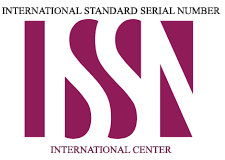-
Psychology
-
Advice
-
Educational Science
Effectiveness of a paradoxical therapeutic approach on working memory performance and obsessive beliefs in individuals with obsessive-compulsive disorder
Volume 5, Issue 2, 2022-2023, Pages 30 - 38
1- Faculty member, Department of Social Medicine, Qom Branch, Islamic Azad University, Qom, Iran.
2- Faculty member, Department of Social Medicine, Qom Branch, Islamic Azad University, Qom, Iran.
Abstract :
Abstract
Purpose: This research was conducted with the aim of investigating the effectiveness of the paradoxical therapeutic approach on working memory performance and obsessive beliefs in individuals with obsessive-compulsive disorder.
Methodology: The current research design is a semi-experimental one with test and control groups with a pre-test and post-test design. The statistical population consisted of all people with obsessive-compulsive disorder who visited a health center in Qom in 2023.Among them, 40 people were selected based on the available sampling method. They were randomly assigned to experimental (20 people) and control (20 people) groups and answered the N-Back working memory test and the OBQ-87 obsessive beliefs questionnaire.Paradox therapy sessions were conducted for the experimental group in 6 sessions of 60 minutes each, and the data were analyzed using analysis of covariance with SPSS-26 software.
Findings: The results showed that the effects of the paradoxical therapeutic approach on working memory and obsessive beliefs were significant.The eta-squared coefficient also showed that 26% of the variation in working memory performance and 44% of the variation in motivational beliefs in people with obsessive-compulsive was explained by the categorical variable (experimental and control).
Conclusion: Therefore, the implementation of the paradoxical therapeutic approach is an effective way to improve the functioning of working memory and reduce the obsessive beliefs of OCD patients.
Keywords: paradoxical therapeutic approach, working memory, obsessive beliefs, obsessive-compulsive disorder


